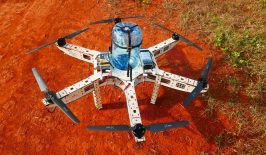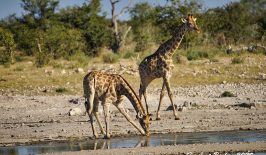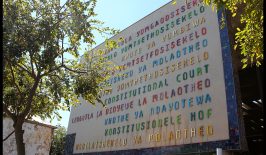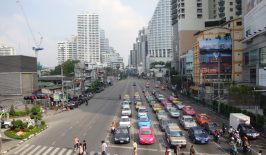Open Source – the term refers to software for which the source code is public and freely accessible to all, available not only to be used and distributed by third parties but modified too. In most cases, open source software is free. Changes are not only tolerated, but the open source software explicitly relies on active participation of others for its development. However, the term open source does not only refer to software, but is also extended to knowledge and information in general. Other “Open” movements include Open Content, Open Source Hardware and Open Access. Wikipedia and the Wikipedia Commons are a prominent example of open content. Other prominent examples of open content are OpenStreetMap and Open Educational Resources.
Researchers from IDE (Implicit Development Environments) have investigated what exactly constitutes the open source software community and what role it plays in shaping the public Internet. Based on 26 interviews with participants in FOSS projects, they explored the strengths and also the challenges within the community. The report also contains recommendations based on these interviews on how donors can support the FOSS community more effectively. The study, entitled “Roadwork Ahead”, was published in June 2020 and was supported by the Ford Foundation as part of the Critical Digital Infrastructure Research Fund.
Challenges in the open source community: a lack of structure and diversity
When evaluating the interviews, the authors of the study found that although the FOSS community is based on trusting relationships, self-organisation and self-motivation, there is a lack of organisational structure and a low level of diversity among the participants. This leads to a lack of different skills and perspectives needed to deliver successful, sustainable projects, the authors said. Furthermore, the community misses important opportunities to receive financial and non-monetary support.
The lack of diversity in the community is mainly due to the fact that people often end up in FOSS projects via the same routes. “Individuals often spend more than a year passively reading mailing lists and trying to understand the code itself before they actively participate in discussions and commit to the code. The fact that people have to invest so much time and effort is seen as necessary for newcomers to demonstrate their commitment and be taken seriously,” the study says. This expectation greatly benefits people who have access to computers in their youth,” it says. Interested people with little previous technical knowledge or with fewer financial means or resources, on the other hand, are disadvantaged from the outset.
The different access opportunities within the opportunity also lead to unbalanced demographics when it comes to ethnicity (“race”), region and gender, the authors claim. Although there is an awareness of this imbalance, there are few examples of communities or projects in the community that are actively trying to diversify.
And its not only the demographics that are often unbalanced. The FOSS community could also be more diverse when it comes to skills too, according to the study. The interviews have shown that currently often people who would prefer to just code also take on the following tasks: project management, financial administration, design, community management, event organisation, communication and coordination with other projects and companies, representation at events and speaking in public. This other work is often considered a burden, annoyance, unwanted surprise and secondary hobby, according to respondents. “We are not particularly good at marketing; we are problem solvers,” said one of the interviewees. This is where more diverse skills and task sharing in the FOSS community could be very useful.
According to the study, many projects also don’t have a defined project structure. This lack of structure is a result of the community members’ strong focus on individual motivation and freedom of choice. The respondents to the study often saw the existence of governance structures as limiting their freedom of action, decision-making and development.
Recommendations: active community management and result-oriented project structures
To ensure that the FOSS community becomes more diverse in the future, the authors recommend that project initiators or supporters should first find out which people, skills or perspectives the project needs to be successful – and where to find them – and work from there. It could also help to make resources and examples of good practice freely available to support those who want to change the process but do not know how to begin.
To make the community more diverse, active community management can help. Scholarships, on the other hand, would only temporarily correct the imbalance, the study found.
To better organise the division of labor, the authors recommend, for example the use of professional moderators for community events, as well as sponsors who are tasked with taking care of the financial administration. By opening up communication channels and sharing knowledge with existing expert groups working on non-coding tasks, FOSS infrastructure projects could access them more easily.
Regarding the lack of structure in the FOSS community, the authors recommend good practices for lightweight, results-oriented FOSS project structures. These could help to make discussions on governance less dogmatic. In general, the authors also recommend a dialogue between different actors in the field of open source infrastructure, for example by supporting events that attract both communities and companies. This exchange could help both sides to better understand each other’s working cultures and find ways to adapt.
In order to make open source available to everyone, not only technically but also socially, the projects must be made more accessible and the FOSS project groups themselves must be diversified – both in terms of skills and in terms of the people involved and their different perspectives. This diversity is indispensable, especially when it comes to ensuring long-term, sustainable projects. To support these goals, public and private donors, who provide a large part of the support for FOSS projects, must create working conditions that offer equal access opportunities to all interested parties. It is also important that they keep in mind the core values of the FOSS community, such as decentralisation and self-organisation. These values are essential to the many individuals and groups in the open source community who are developing an open digital infrastructure in the public interest.
This is a translation of an original article first published on RESET’s German-language site.








